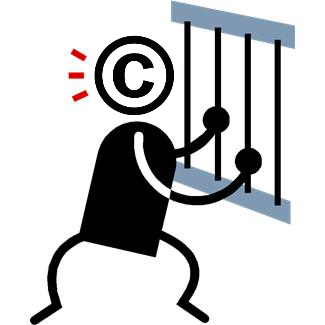
A couple of weeks ago, I discussed the case of a law student in Bengaluru who alleged copyright infringement against two assistant professors. Just a couple of weeks later I’ve now come across news of another student alleging copyright infringement, (Paras Kumar Choudhary vs The State of Jharkhand), but this time a criminal proceeding was instituted against the professor! This was later quashed by the Jharkhand High Court on August 10, 2023.
The proceeding was initiated by one Dr. Shambhu Nath Mishra (the informant) against his PhD guide Dr. Paras Kumar Choudhary (the petitioner) alleging that the petitioner’s book “Chero Janjiwan” (which translates approximately to ‘Chero Public life’ or ‘Public life of Chero Tribe’) is based on his PhD thesis titled “Chero Janjati Ka Samajik Ewam Arthik Jiwan.” (which translates approximately to ‘Social and Economic life of Chero tribe’). On the above allegations, the Chief Judicial Magistrate, Ranchi took cognizance of the offense u/s 63 of the Copyright Act (copyright infringement) and Section 420 of the IPC (Cheating).
The petitioner argued before the High Court that the only similarity between the works was that they are both based on the “Chero tribe” and further argued that the informant had not registered its copyright and thus the proceedings should be quashed.
The High Court noted that the petitioner has acknowledged the contributions of the informant in his book and that the subject matter of both the works were different and thus held that the First Information Report did not disclose the commission of any cognizable offense under Section 63. The High Court also dismissed the charges under Section 420 of the IPC, holding that intent to cheat was missing from the case. The High Court observed that the Chief Judicial Magistrate’s order taking cognizance had the word “cognizance” filled in by hand and insinuated it to mean non-application of judicial mind. But how did it come to this conclusion? Would merely handwriting something in an order insinuate non-application of judicial mind? It seems obvious that the only reason to hold non-application of judicial mind, would be to examine the reasoning in the order. The High Court order is not clear on whether this occurred though, and I am not able to find the original order to check if there were any reasons mentioned. Nonetheless, quashing the criminal proceedings, the High Court suggested that a party can resort to the court of civil jurisdiction if the nature of the case warrants so. (more on this below).
Though the eventual direction of the High Court here seems accurate, I think the High Court should have addressed the petitioner’s argument on mandatory registration of copyright and clarified that there is no such requirement within the Copyright Act. It is really surprising that despite clarity on the position i.e. registration is not mandatory to claim remedy against copyright infringement, (for instance, see Sanjay Soya v. Narayani Trading Company and Adyasha’s insightful post on the order) parties still argue the contrary in infringement cases.
Further, though the High Court’s order states that no case u/s 63 has been made out, it sums it up in just one line- “The subject matter of the research work of the informant was different whereas the book published is different.” There is no discussion on how the High Court was able to reach this conclusion. Did it rely only on the First Information Report or did it actually compare the two competing works? This clarity would have been necessary to highlight how the case was registered without application of mind.
Concluding its findings, the High Court suggested that if the case is of civil nature and if any wrong has been done, parties can approach the competent court of civil jurisdiction. But when the High Court has categorically held here that the competing works are different, can the informer approach the court of civil jurisdiction at all? Especially when the High Court has not disclaimed that the finding of this order should not impact other suits on the same facts. One may think that the civil suit becomes unnecessary because of the above finding. However, recently on May 31 the Karnataka High Court in M/s. New Sultan Beedi Works v. State of Karnataka clarified that the Copyright Act provides for both civil and criminal remedies and the outcome of both are independent of each other.
And finally, the case also highlights why criminalizing copyright infringement is a bad idea (a point also emphasized by Aparajita in her post here). As per the order, the FIR was lodged in 2013, and as reported here, the petitioner was even arrested on the charges of copyright infringement too. The case went on for 10 years and has been quashed only now. Leaving aside the larger debate of restricting criminalization to large-scale piracy and not one-off allegations of infringement, the nature of the offense, without the requirement of mandatory registration would plunge the enforcement agencies to deliberate upon complicated questions of originality, fair dealing, etc. However, these questions were clearly not paid heed to in the present case and ultimately it was the petitioner who had to suffer.
Thanks to Swaraj for his input on the post.

I appreciate the insightful analysis provided in this article on the “Jan Vishwas Bill 2023.” It highlights the potential impact of the bill on small businesses, competition, and public health, shedding light on important aspects that need consideration. Well-researched and thought-provoking – a valuable resource for anyone interested in the intersection of law, business, and public welfare.